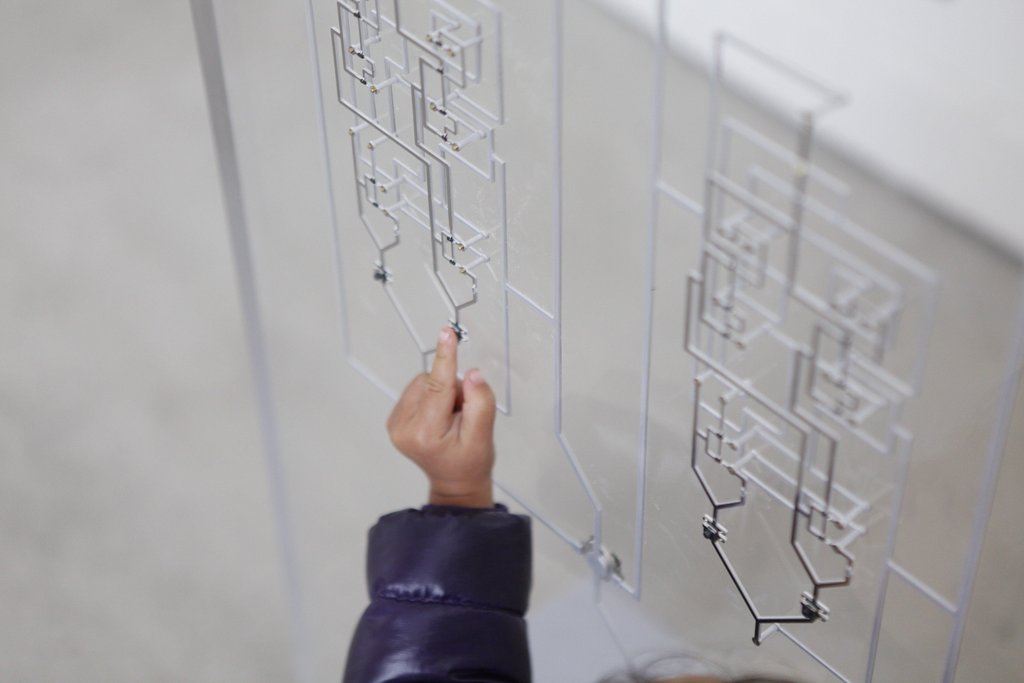
Poetic Hardware
Date: Starting in July 10th 2020 until September 11th, 2020, every Friday 1-4 PM EST (Updated date)
Teachers: CW&T (Che-Wei Wang + Taylor Levy), Tiri Kananuruk and Sebastian Morales
Application is now open until June 10th, 2020
In Poetic Hardware we learn computational hardware as a way to engage with the physical world and broaden our creative practices. This 10-week online curriculum is supported by a custom electronics learning kit intended for beginners to learn about analog + digital electronics, a programmable micro-controller, sensors and mechanisms through a lens of legibility and thoughtful exploration.
Beginning with discrete electronic components such as resistors, LEDs and transistors, and then moving to integrated circuits, Arduino , sensors, motors, mechanisms and building physical things, our focus is on connecting with the physical nature, system, rules and materiality of electronics + hardware. We address electronics as human-scale objects, which we can see, shape and manipulate in a circuit. With an emphasis on legibility, we dissolve the microscopic abstractions and systems, which are usually obscured in conventional technology products and re-establish our relationship to technology.
Through instructor-led tutorials, modular circuits and creative hands-on prompts, we will create custom electronics with our hands and gain access to electronic production tools that are normally reserved for mass production. By the end of the course, expect to have a working familiarity with basic analog and digital electronics, and the confidence to begin to apply computational tools to our creative practices.
The Poetic Hardware class is developed and taught by CW&T (Che-Wei Wang + Taylor Levy), Tiri Kananuruk and Sebastian Morales.
Past student projects. Photos by Tiri Kananuruk
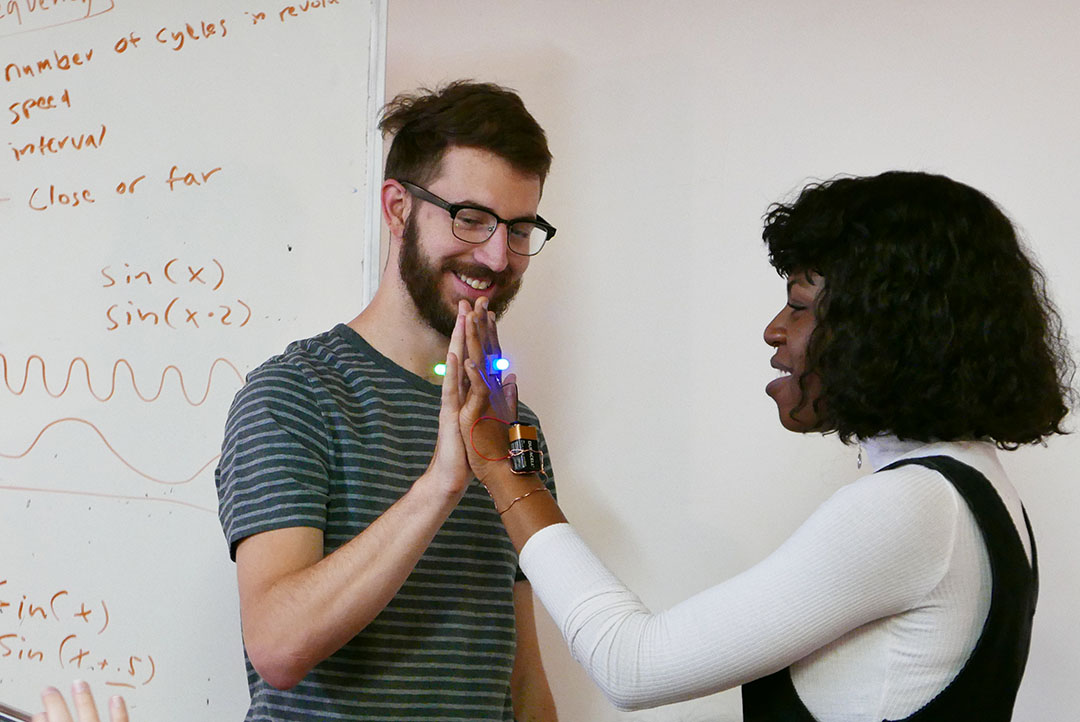
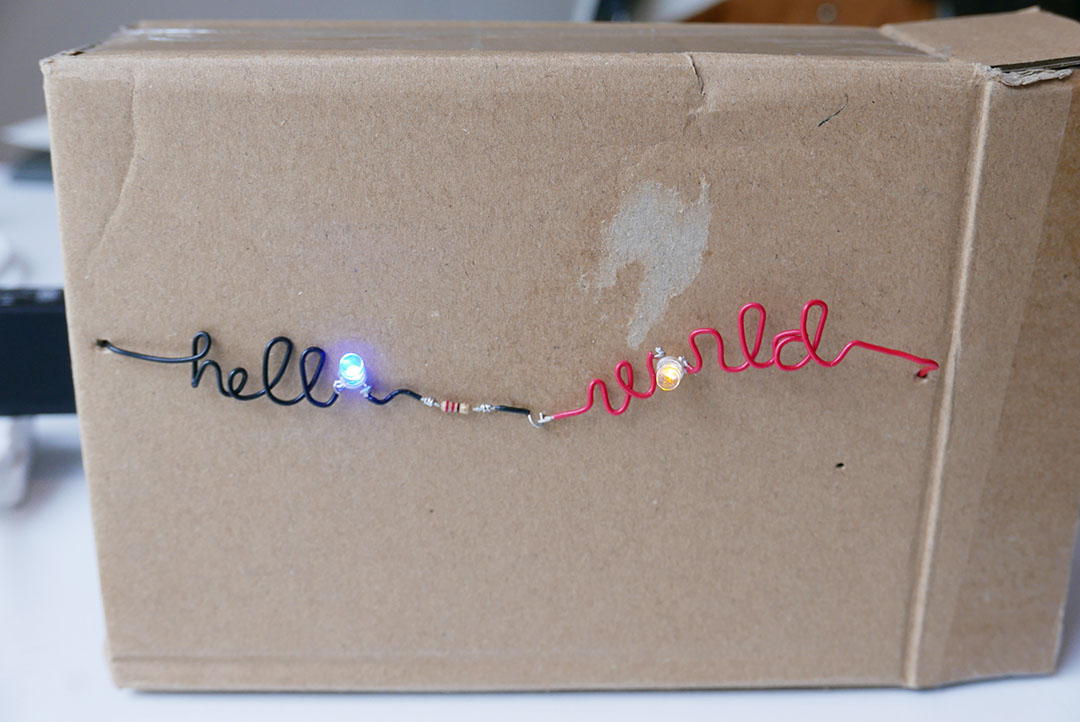
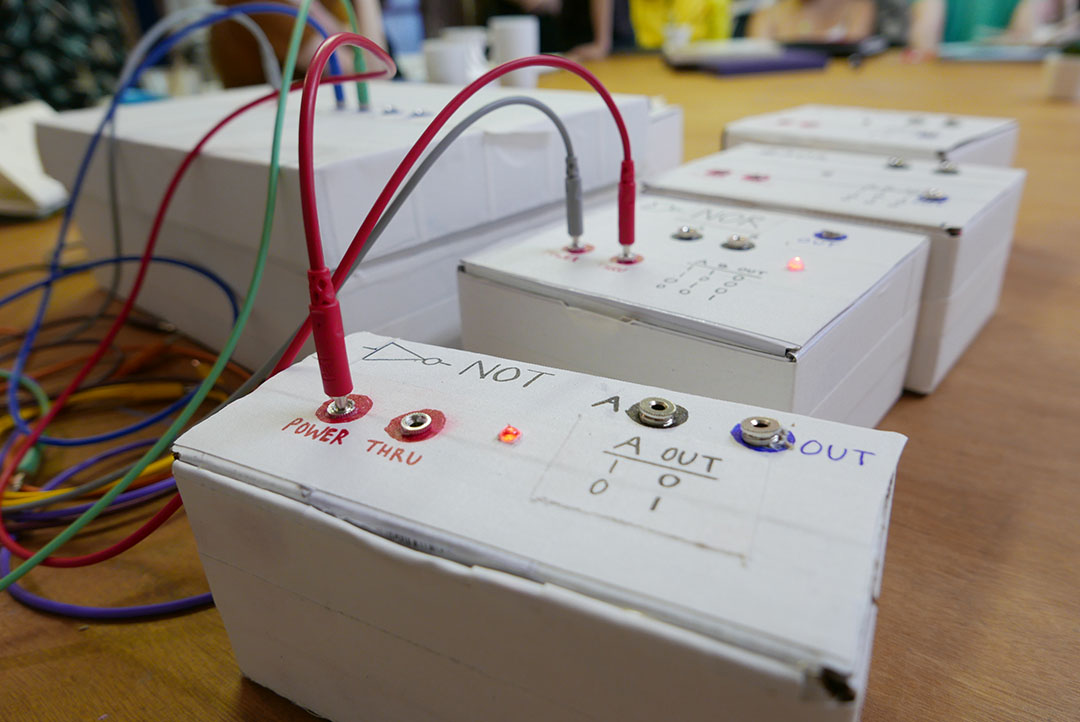
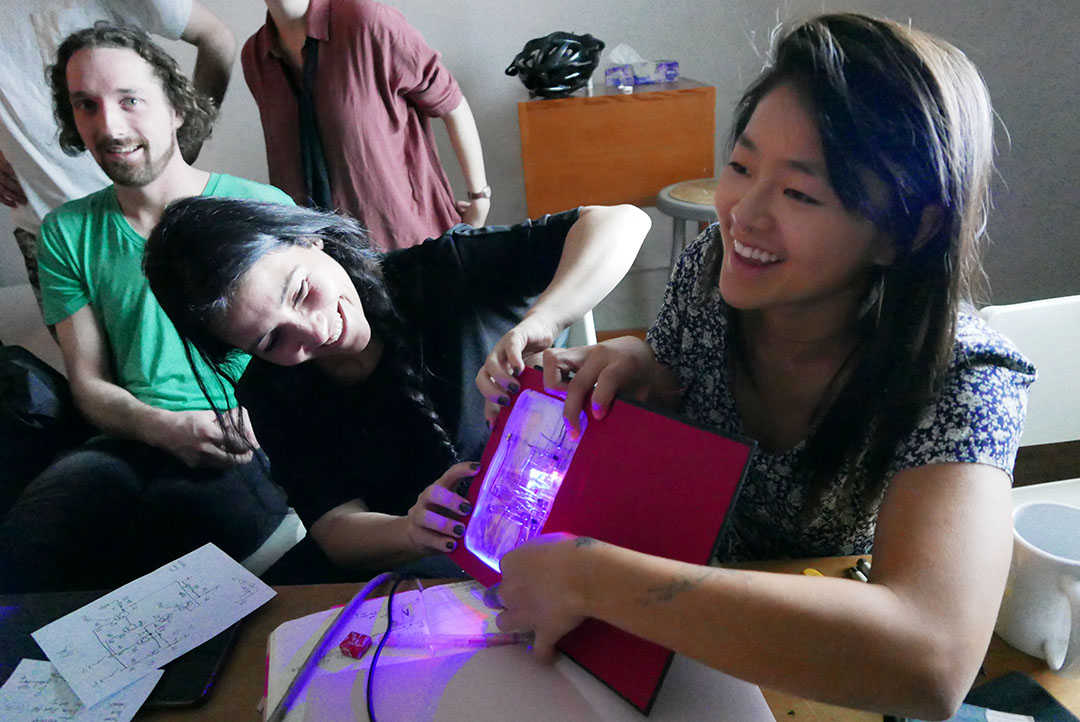
Expectations and requirements
Through weekly lectures, individual meetings with teachers, hands on activities, tutorials and project shares, we will work through a mix of open ended assignments, poetic prompts and technical challenges. These may include creating a simple Input/Output system, building a playful button or cardboard mechanism, or even creating something seemingly non-technical. We will use everyday tools and materials we can easily work with in our homes. Think soldering iron, cardboard, rubber bands and hot glue! We will also learn how to build + order a PCB (printed circuit board) from scratch and order components.
Weekly lectures are accompanied by custom electronic kits. Kits are intended as “physical lecture notes”, a way to engage more closely with the course material and to provide a modular and accessible starting points for future projects.
An important part of this class will be virtual 1-on-1 instructor + TA meetings. These are meant to help guide your creative practice with this new material. Even though there is a technical component to this class, our primary goal as educators is to empower your creative practice. There are no technical requirements for this class. Whether you come as a seasoned electrical engineer or someone who has never touched a wire, come to class ready to get your hands dirty, to support your peers, to get frustrated and to freely work with computation as physical material in new and unfamiliar ways.
Syllabus
- Welcome class. Hardware in a home. (Studio tour, survey of tools we use, materials, fabrication possibilities).
- Intro to circuit. Power, ground, control, resistance.
- Electronic control. The transistor + logic.
- Calculator/clock/time based circuits/seven segment disaplays.
- Building an Arduino from scratch.
- Analog input (sensors).
- Motors + mechanisms.
Meet the teachers
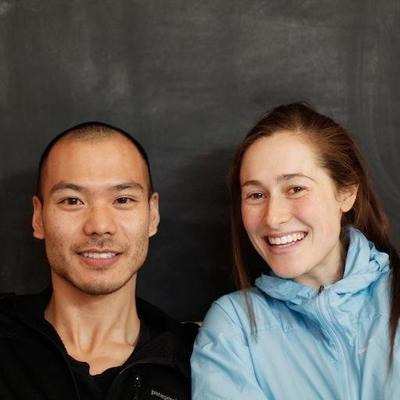
CW&T is the art and design practice of Che-Wei Wang & Taylor Levy.
Che-Wei Wang [pron. sey-wey] is an artist, designer & architect with expertise in computational and generative design, fabrication technologies, electronics, CNC machining, and metal manufacturing. The results range from architecture & sculpture to interactive installations & mobile apps. He is the winner of the 2003 SOM fellowship and the Young Alumni Achievement Award from Pratt Institute. Che-Wei has taught courses on design, time, creative computing, and inflatables, at various institutions. He is an alumnus of MIT Media Lab, ITP at NYU, and Pratt Institute.
Taylor Levy [pron. tey-ler] is an artist & designer with a penchant for taking things apart, understanding how they work, and then putting them back together in a way that exposes their inner workings.The results take on a variety of forms from low-tech electronic sculpture to high-tech software & other executions. She has work on view at The Leonardo Museum of Science and Technology and was a resident at Fabrica Interactive in Treviso, Italy. She is an alumna of MIT Media Lab, ITP at NYU, and Vassar College.
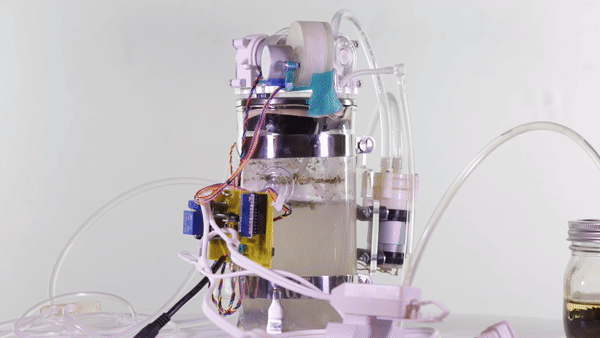
Sebastián Morales is an artist, engineer and researcher based in NYC. He develops interactive works at the intersections of robotics, digital culture and living systems. He is currently a new media artist in residence at Mana Contemporary in NJ working on speculative symbiotic relationships between single cells and internet bots. Creating estuaries for them to evolve into new hybrid forms.
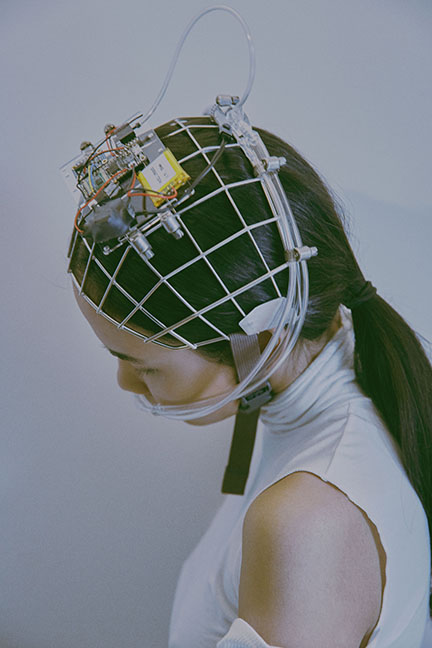
Tiri Kananuruk is a performance and new media artist. She holds a BA in exhibition design from Chulalongkorn University in Bangkok, and an MPS from the Interactive Telecommunications Program at New York University. Her work explores the manipulation of sound in the context of technological consumerism, examining human relationships through the use of transmitted signals, machine learning, natural language processing and bodily movement.
This class is organized by Taeyoon Choi of the School for Poetic Computation.
I’m still not sure if I should take this class?!!?
If you already have a clear electronics project in mind, like building a drone or a complex I.O.T. system, this may not be the right class for you. However, if you want to learn about electronics + hardware through the lens of poetry, self-expression and quirky thoughtfulness, we look forward to working a playing together.
What will I get from taking this class
- Special tutorials and class materials created by SFPC teachers
- Lectures, homeworks, 1:1 office hours with SFPC teachers
- A custom board designed by Taylor Levy (We will ship it out to you)
What is not included in the tuition?
- A laptop computer with a webcam (not provided)
- Soldering iron and basic electronic tools (We will suggest our favorite tools for you to purchase or source)
- A kit of electronic parts (We will make a list of items for you to order)
- Tools and kit would cost roughly $300 USD if you were to buy all new items
How do I apply?
Application is now open until June 10th, 2020.
We will be accepting up to 15 students on a rolling basis. We will respond to your application within 5 days of submission. Rolling admissions means there are fewer and fewer slots the longer you wait, so if you’re interested in the program get your application in early!
How much is tuition?
$1700 + Eventbrite payment processing fees for all classes and a custom board. The tuition does not include a kit of electronic components and basic electronic tools (such as a quality soldering iron) totalling no more than $300. If you have some of the tools, you are not reqired to purchase new tools. Upon payment, your space in the class will be reserved.
We are completely self-funded, which dramatically limits our ability to offer scholarships. While we price our classes reasonably to offer quality learning experiences, we understand the tuition is beyond the reach of many people. We are sensitive to the rapidly changing economy due to the COVID-19. While we can’t offer scholarships like the past, we hope to support students in need. Our previous students have received support from cultural foundations, schools, current employers, or crowdfunding. We are happy to provide supporting materials as proof of acceptance. Please check out these resources for financial support in response to the COVID19 pandemic.
- Cloud9 Mutual Aid Doc: Financial Assistance
- The Art of Social Distancing We are committed to being transparent about how we make and spend money. In the spirit of radical openness and generosity, on which the school was founded, we open-source our finances on Github. There, you can read financial reports and download raw statements.
What if I can’t go, can I get a refund?
- Yes, we can give you 100% refund up to 10 days before class starts
- 50% refund after 10 days, until the first day of class
- No refunds can be given after the first day of class
Accessibility
Our classes are conducted in spoken English with audiovisual materials such as slides, code examples and video. All classes will be held over Zoom until further notice. Please contact us if you need a special accessibility requests. In the past, we worked with American Sign Language Interpreters and Visual Interpreters, as well as accessibility and disability rights organizations to make our classes more inclusive. Our programs are rapidly changing due to the COVID-19, we are adjusting to the needs of our community. Please help us become more accessible and inclusive.
If you have any questions regarding the class, please email hardware@sfpc.io and for administrative questions, please email info@sfpc.io.
Application is now open until June 10th, 2020.
Updated date
Due to the COVID-19, custom board manufacturing has been delayed. We are resecheduling the class to start in July 10th, 2020. Thanks for your patience. Updated on May 31, 2020.
Main image: Inlaid Logic by CW&T.